Brew up some wellness with our elecampane tea recipe. Simple steps, rich flavors, and a touch of nature’s magic in every sip!
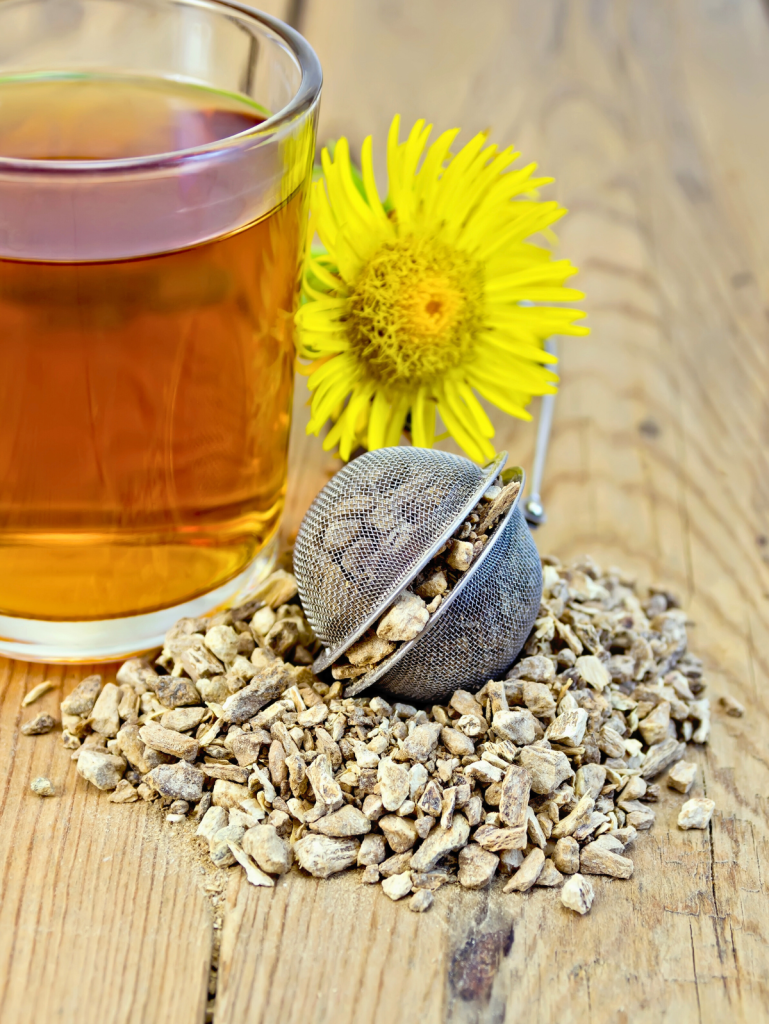
Ever heard of a root so legendary that it links back to Helen of Troy herself? Meet elecampane, an aromatic herb cherished for centuries. Packed with sesquiterpene lactones and volatile oils, this medicinal plant has been a staple in traditional medicine, especially for respiratory ailments. Imagine sipping a warm cup of elecampane tea and letting it work its magic on your sore throat and tired respiratory system.
Whether you’re dealing with a pesky unproductive cough or just need a boost for your immune system, elecampane tea might be your new best friend. But beware, large doses can have side effects—sometimes more sleepiness or allergic reactions. Always consult a healthcare provider before diving into herbal remedies.
If you’re interested in other ways to enjoy this powerhouse, consider trying elecampane tincture as a convenient alternative. Whether you’re in North America or beyond, exploring the benefits of elecampane can be an enlightening addition to your wellness routine. Ready to brew some goodness? Let’s dive into a delightful elecampane tea recipe!

What is Elecampane?
Elecampane, sometimes called the “Helen of Troy” among plants, is a magical herb belonging to the Asteraceae family. Its formal name is Inula helenium L., and it has been a cherished member of traditional medicine cabinets for centuries. If you’ve ever rummaged through your grandmother’s herbal medicine chest, you might have stumbled upon this ancient remedy, famous for its deep roots in natural health.
Traditional Uses
In both North America and Europe, elecampane has played a starring role in herbal medicine for ages. This aromatic herb is celebrated for alleviating a range of health conditions, especially respiratory ailments. Whether you’re battling a sore throat or grappling with unproductive coughs, elecampane is like a trusty friend to your respiratory system. But its talents don’t stop there! Elecampane is also a savior for those with digestive issues and even offers a helping hand against pesky intestinal worms.
- Respiratory Tonic: Elecampane acts as a respiratory tonic, often brewed into herbal teas for soothing relief.
- Digestive Aid: As one of the best herbs for digestion, it helps calm upset stomachs.
- Worm Warrior: Traditional uses include battling intestinal worms, showcasing its versatility.
Active Compounds
The secret to elecampane’s power lies in its active compounds. This medicinal plant is loaded with sesquiterpene lactones, volatile oils, and other health-boosting substances. These compounds work together like a well-rehearsed orchestra, offering a symphony of benefits.
- Sesquiterpene Lactones: These are the superstars responsible for many of the health benefits, particularly in supporting the immune system and fighting respiratory infections.
- Volatile Oils: These oils provide a soothing effect on mucous membranes, aiding in clearing the respiratory system.
- Bitter Principle: Considered one of the bitter herbs, its bitter principle contributes to digestive health.

Before diving into large doses of dried root or elecampane extract, take note! Too much elecampane can cause allergic reactions or interact with sedative medications, leading to much sleepiness. Always consult a healthcare provider and heed product labels for an appropriate dose.
Fancy trying an alternative to tea? Check out this elecampane tincture for another way to harness its benefits!
This quirky plant with its fresh elecampane roots is a testament to how ancient times knew a thing or two about natural products. Keep exploring to see how you can incorporate this versatile medicinal gem into your life!
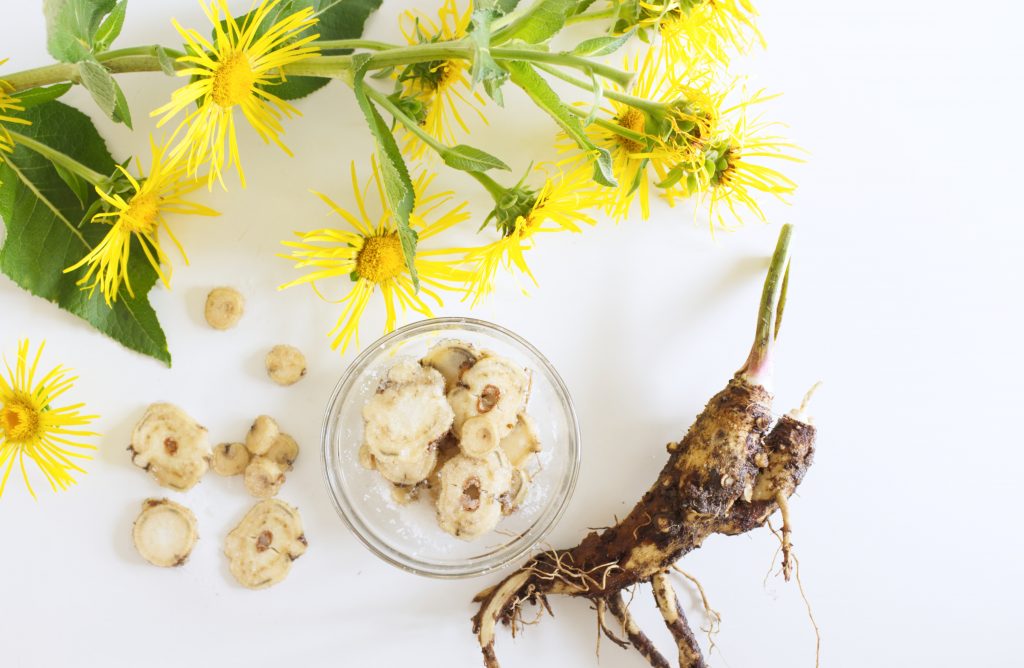
Health Benefits of Elecampane Tea
Elecampane tea, made from the dried elecampane roots of the elecampane plant (Inula helenium L.), is a flavorful way to enjoy some of nature’s finest herbal medicines. You might be thinking, “What can a cup of hot water brewed with fresh elecampane roots do for me?” Well, sit tight because we’re about to supercharge your knowledge of this herbal aromatic herb and its health benefits.
Respiratory Tonic
Imagine your respiratory system as a bustling airport—lots of action but prone to occasional disruptions like chronic bronchitis and unproductive coughs. Elecampane tea is like the ever-vigilant air traffic controller for your lungs. The sesquiterpene lactones and volatile oils in elecampane help clear your “runway” of any blockages. Picture a train clearing snow off the tracks, enabling smooth departures and landings for your breath.
- Chronic bronchitis relief: Elecampane can help ease congestion and inflammation, helping you breathe easier.
- Tackles those stubborn unproductive coughs: If your coughs aren’t doing their job, elecampane steps in as the backup quarterback with a winning play.
- Fights respiratory infections: It acts as a natural defender against various infections, keeping your respiratory “airport” running smoothly.
Curious about other ways to incorporate this medicinal plant into your medicine chest? Check out this Honey Elecampane Syrup for a potent alternative to tea.
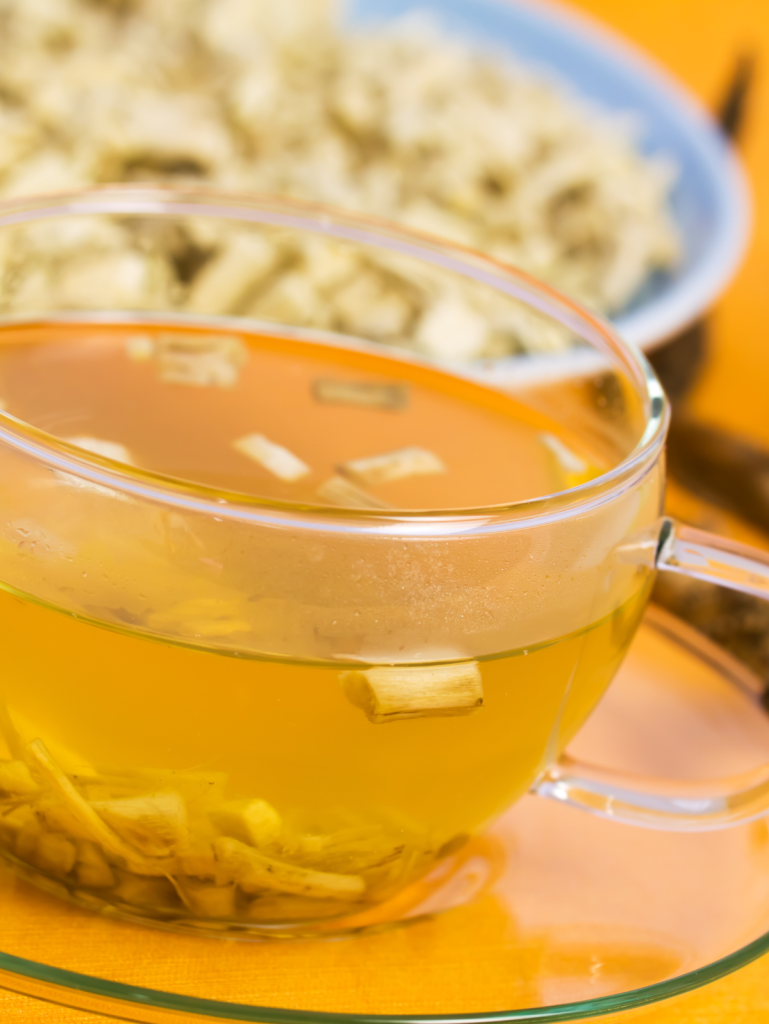
Digestive Support
Now, let’s move on to your digestive system. Think of it as a seasoned chef, always tweaking recipes for optimal performance. Elecampane tea brings the chef some much-needed backup. Its bitter principle acts like a trusted sous-chef, aiding in the digestion process.
- Relief for an upset stomach: Got a stomach that grumbles louder than a thunderstorm? Elecampane soothes it like a lullaby.
- Use in homemade cough syrup: Who knew your stomach’s ally could also double as a throat soother? Mix it with a little raw honey to create a concoction as sweet as grandma’s love.
Elecampane has been used since ancient times to alleviate stomach troubles, and it’s even been popular in traditional medicine across the United States and North America. Remember to talk to your healthcare provider before gulping down large doses, especially if there are existing health conditions. After all, the best chefs always taste before serving!
In a nutshell, elecampane tea isn’t just part of the bitter herbs crew—it’s a versatile player in the herbal products league. Whether battling a sore throat or an upset tummy, elecampane acts as a trusty sidekick on your journey to better health.
How to Make Elecampane Tea
Are you ready to brew a soothing cup of elecampane tea? This aromatic herb has been used in traditional medicine for centuries. It’s known as a respiratory tonic, especially during cold months when respiratory ailments tend to creep in.
Ingredients Needed
Before you start, gather all your magical ingredients. Having everything in one place makes the process smoother than a freshly brewed cup of herbal tea!
- Fresh or dried elecampane roots: These are the superstar ingredients, with their potent sesquiterpene lactones and medicinal plant properties.
- Water: You’ll need about two cups of cold water.
- Optional sweeteners: A dash of raw honey adds sweetness without overpowering the tea’s mild bitterness, which comes from elecampane’s bitter principle.
How to Make Elecampane Root Tea Recipe
Creating elecampane tea is like performing a delightful kitchen dance. Follow these steps, and soon you’ll have a cozy beverage to cuddle up with:
- Measure the elecampane roots: Use about one tablespoon of dried root or one to two tablespoons of fresh roots. This is where the roots of elecampane take center stage.
- Boil the water: Bring two cups of cold water to a boil, then add the elecampane roots. Think of it as the start of an ancient times herbal concoction.
- Steep the Tea: Reduce the heat and let it simmer for about 10-20 minutes. This slow brew helps extract those delightful volatile oils and beneficial compounds.
- Strain and Sweeten: Carefully strain the tea into a cup, adding raw honey if desired. Too much honey isn’t necessary; let the elecampane do most of the talking!
- Serve: Pour your elecampane tea into a mug, bask in its soothing aroma, and enjoy. This cup of hot water infused with elecampane is a nod to its traditional uses as a respiratory booster.
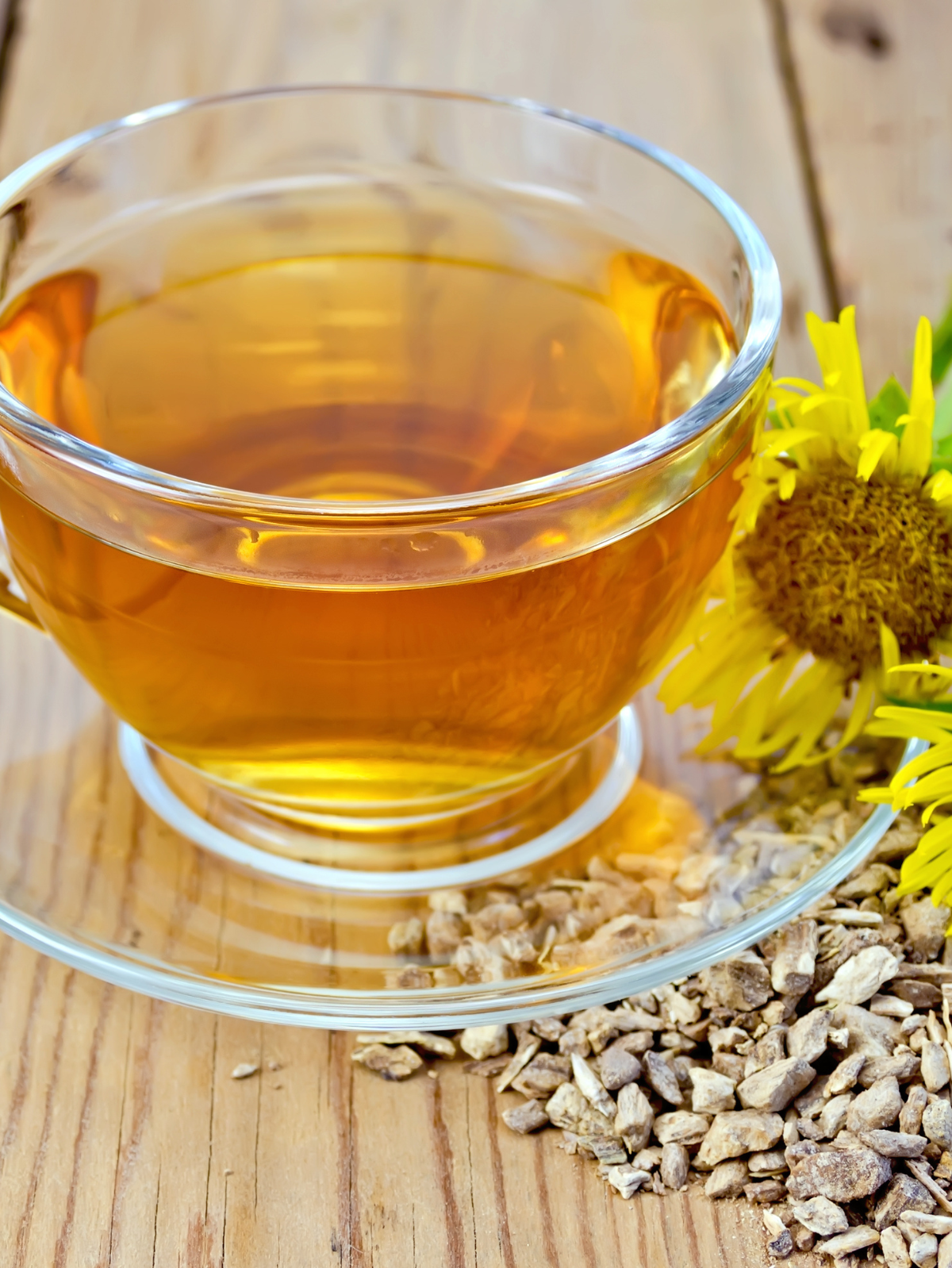
Storing Leftovers
Made more than you could sip? No worries! Proper storage will let you savor it later. Simply follow these tips to keep your elecampane brew fresh:
- Airtight Container: Pour any leftover tea into an airtight container to preserve its flavors and health benefits. This way, the tea stays ready for when you need it next.
- Refrigerate: Keep the container in the fridge for up to two days.
If you’re curious about other ways to use elecampane, consider checking out an elecampane tincture. It’s a versatile alternative that adds a touch of Helen of Troy mythical magic to your pantry.
There you have it! This elecampane tea recipe is a warm hug in a mug, perfect for soothing sore throats and supporting the respiratory system. Next time a cough tries to steal your thunder, you’ll know exactly what to brew.
Precautions and Considerations
Before you sip on that soothing cup of elecampane tea, it’s crucial to consider some guidelines to ensure you’re making the most of this herbal delight safely. Whether you’re dealing with a sore throat or simply exploring traditional uses, understanding the right dosage and possible side effects of this aromatic herb can be as important as brewing the perfect cup.
Potential Side Effects
As tempting as it is to brew a pot and sip away, caution is your ally. Large amounts of elecampane may play havoc with your central nervous system, leaving you with much sleepiness. It’s like a natural sedative that doesn’t care if you’re ready for bed or not.
So, what side effects should you look out for? Here’s a quick list to keep in mind:
- Drowsiness: Especially if combined with sedative medications.
- Allergic Reactions: Those with sensitivities to Asteraceae family plants—think ragweed and related plants—may experience reactions.
- Upset Stomach: Like with many bitter herbs, too much can tickle your digestive system the wrong way.
- Blood Sugar Effects: If you’re managing blood sugar levels, this herb might interfere.
It’s like having a mischievous fairy in your medicine chest—helpful but with a mind of its own. In any case, if symptoms persist, calling your healthcare provider is the best course of action. Safe sips make for happy cups!
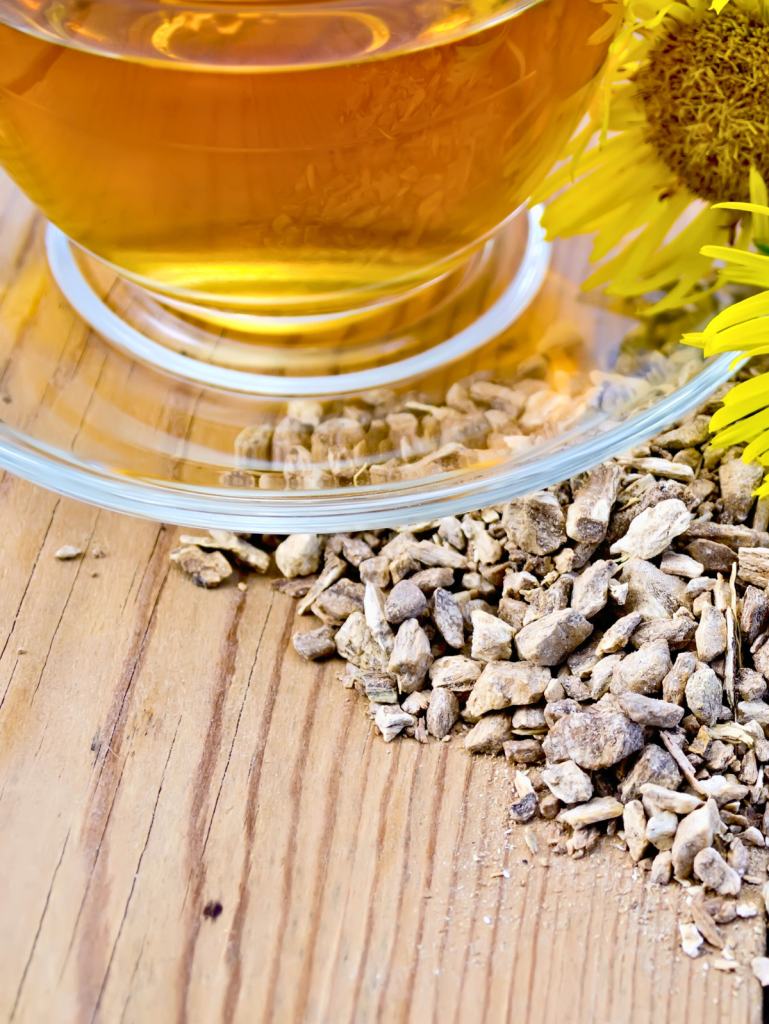
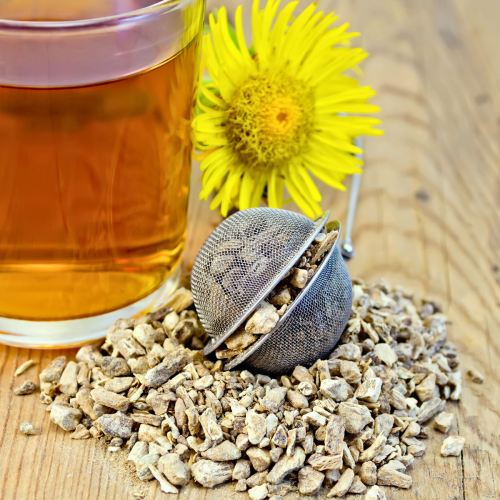
Elecampane Root Tea
Ingredients
- 1 teaspoon dried elecampane root
- 1 cup boiling water
Instructions
- Toss the dried root into a cup.
- Pour the boiling water over it and let it steep for 10 minutes.
- Strain and enjoy!



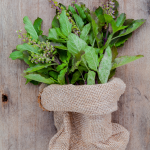
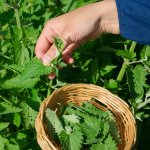
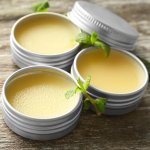


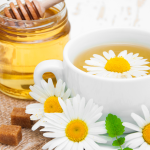

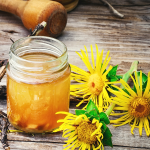
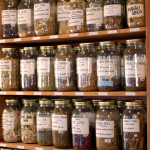

Leave a Reply